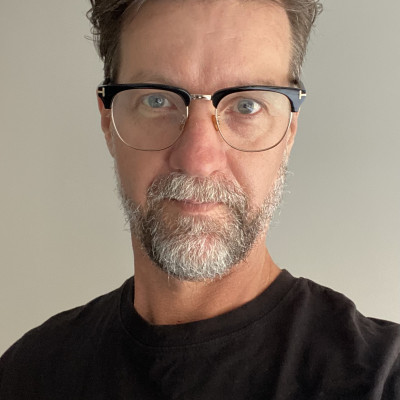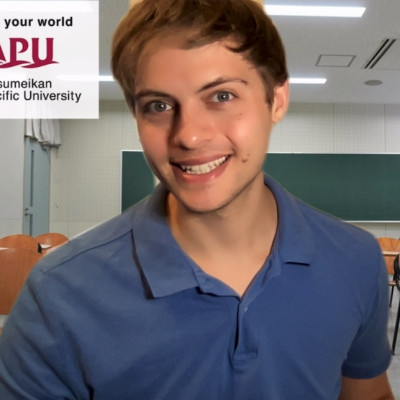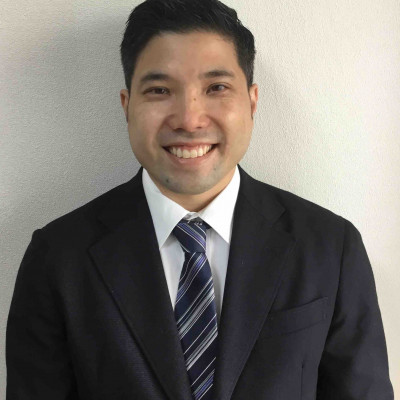Sessions / Learner Development
The Power of ‘Obsidian’ – Revolutionising the Way We Take Notes #1910
Note-taking is essential for any academic endeavour. Yet many curriculums fail to teach a systemised and effective approach to this skill. The repercussions are significant, more often than not resulting in substandard work being submitted by students. Inspired by Sönke Ahrens' breakout book 'How To Take Smart Notes', this workshop will cover the principles of taking smart notes and introduce a powerful note-taking app called 'Obsidian' that will help teachers and students alike optimise the thinking process.
The Effect of Dual-Language Authentic Materials in Junior High Schools #2184
The use of dual-language authentic material in storytelling for English language learning is well understood. Though some studies have focused on the use of bilingual children’s books as authentic material, less is known about the effects of student-produced dual-language authentic material on early English language development. In this presentation, the presenter aims to explore how junior high school students make use of these materials in their language development.
Learner Development SIG Identities #2327
In this LD SIG forum, presenters will look at who the LD SIG is as a special interest group. What does learner development mean to SIG members? What experiences have members valued? What research have members embarked on? Where is the SIG going? How is the LD SIG interpretation of learner development evolving? The forum will feature timed rounds of interactive narratives highlighting themes such as self-regulation, autonomy, learner identities, and lifelong learning.
The Effect of Practice Tasks on L2 Writing Development: A CAF Perspective #2136
The presenters will share the results of a mixed-methods study investigating the effects of different types of writing practice on developing complexity, accuracy, and fluency (CAF) in the writing of Japanese university students. Three groups who received regular practice in either sentence-combining, translation, or fluency writing were compared on measures of CAF across one semester. The findings from the study will be discussed in terms of pedagogical implications for writing instructors.
Perceptions of Multimodal Remediation Compositions in L2 Academic Writing #2282
Multimodal remediation-based compositions (MRCs) are multimodal compositions where students convert a composition from one mode to another. This study examines EFL students’ perceptions of MRCs. How does doing MRCs impact student perceptions of L2 writing? How do student perceptions differ between text-based compositions (TC) and multimodal compositions (MC)? Findings show that doing MRCs did not change student perceptions of L2 writing. However, students did have distinct perceptions distinguishing TCs from MCs.
Scaffolding Oral Task Difficulty to Enhance Engagement and Performance #1951
Low-level students often struggle to speak up within orally interactive classwork due to problems with confidence, anxiety, and task difficulty. Participants will be introduced to a powerful three-stage scaffolding model for tasks which helps students improve fluency over time by better preparing, checking, and reviewing planned speech. Recent data on the influence of the model on engagement and performance will be shared and guidance given on applying the model to any language learning context.
Developing Effective Hand-Written Notes in 1st-Year University Classes #2168
Effective note-taking by hand plays an integral role when students must research and discuss complex topics. However, first-year university students may lack experience in preparing and using notes effectively. Also, they may not be aware of specific benefits that hand-written notes can offer. In this presentation, methodologies used to help students develop note-taking skills for communication and reflection, as well as ways that hand-written notes can be used in online classes, will be discussed.
Out-of-Class Learning at a Japanese University Self-Access Center #2212
This poster session outlines the first part of a longitudinal qualitative study that investigates university students’ participation in a self-access center by focusing on their perceptions, learning experiences, and attitudes. The research is concerned with whether students will become more willing to seek out future opportunities to use English beyond the classroom in non-formal settings after having been strongly encouraged to do so as part of their English course.
Cluster Analysis Using Test Scores and Test Familiarity and Preparation #2150
This presentation reports individual differences in L2 English proficiency gains after one year in an intensive English program at a small private university in Japan, using test scores, a survey, and interviews. For the current study, cluster analysis was used to identify subgroups from a large cohort based on their test preparation and experience. Cluster analysis, a multivariate exploratory procedure, revealed five subgroups, organised by their proficiency gains or losses, and test familiarity and preparation.
Spiral Upward: A Framework for Engendering Reflective Output #2039
Paul Ricoeur’s “self” expands its self- and world-understanding by 1) encountering the outside or the other, 2) reflecting upon this encounter, and 3) mediating and processing it through the self’s existing identity: spiraling forward. This presentation employs said framework to engender students’ output that reflects their expanded worldview vis-à-vis their lived reality (e.g., hobbies, diet). This three-step process equips them ultimately to reflect upon the insights gained as a result of their encounters.
Making Classes SMART to Boost Student Motivation and Achievement #1953
Students make greater efforts within language learning tasks if they fully understand where their performance is, where it should go, and how to get it there. The presenter will introduce how to raise student motivation and achievement within common English communication tasks with SMART checklists. Participants will see how they can create more confidence and focused classroom environments by applying simple checklists of skills, measures, actions, reasons and time to their own contexts.
Cultivating Autonomous Learning With a Language Learning Strategy Database #2206
This panel will overview the evolution of integrating independent learning into a Japanese university’s English program. As language classes moved online in 2020, our research team identified the need to provide students with accessible and practical language learning strategies (LLS) to supplement their personalized self-study. Thus, an online LLS database was developed. Student and teacher feedback will be discussed, revealing insights into how an LLS database can be used to support students’ autonomous learning.
Making the Most of Online Learning: Student Reflections, Teacher Responses #2243
This presentation outlines research into student experiences of remote learning. The initial goal was to learn more about students’ online learning experiences and devise informed interventions. The presentation outlines a three-step information gathering process: exit cards, a qualitative survey of reflections, and a Google Forms survey to quantify experiences across the department. These provide insight into factors that influenced students’ satisfaction with remote-learning and illustrate the benefits of engaging students in the process of analysis.
Narrative Inquiry into the Student Sojourn Experience - JALT2021 Kevin Cleary Invited Speaker Presentation #2418
Narrative Inquiry is a body of research that considers personal accounts, giving voice to those often invisible in academia. The presentation incorporates Japanese university students’ English language accounts. The purpose is to understand learners from a holistic perspective. Language learning is an individual journey of discovery and progressive skills. It is hoped this presentation will provide perspective, as an educator or a language learner yourself, on personal journeys represented in the Japanese classroom.
Lyndell Nagashima is the JALT2021 Kevin Cleary Invited Speaker. The Kevin Cleary Invited Speaker program was begun in 2014 in memory of a beloved JALT President who passed away in January 2014. Kevin was involved with JALT as an officer at the chapter level and the national level since 2002. The speaker for this award is one who encompasses the same spirit and enthusiasm Kevin showed during his time with JALT.
Serendipities in Self-Access Learning: Positives From the Pandemic #2318
The COVID-19 pandemic has been problematic for self-access and social language learning spaces where community, interaction, and proximity are central to our mission. Moves to remote or hybrid learning and the need for social distancing have forced us to rethink our practices. This forum explores how these initiatives have led to greater choice for learners and even some surprising benefits. There will be two mini-presentations, followed by discussion time.
Learner Development SIG AGM #2458
At the LD SIG AGM, we will look through the 2021 Learner Development SIG Committee Review and treasurer’s report for 2020-2021 and discuss the budget for 2022. Also, we will share ideas and plan our SIG activities for 2022. Looking forward to meeting everyone!
The Efficacy of Studying Abroad at Varying Lengths through Remote Learning #2258
This study examines two groups of Japanese university students who participated in a five-month and ten-month study program overseas during the COVID-19 pandemic. Both groups were required to take the TOEIC exam pre-departure and post-arrival, and quantitative analyses were used to measure any improvements at both the individual and group level. Research methods were also utilized to determine the effects of the pandemic on the overall study abroad experience.
Emergency Remote Learning: Learner Perceptions and Readiness for Autonomy #1959
This study explored learner perceptions and readiness for autonomy after one year of emergency remote learning. An open-ended survey was administered to 850 first-year undergraduates across eight faculties. Qualitative analysis of learner perspectives highlighted positive and negative impacts of self-directed online learning in areas such as technology, social relationships, affective issues, and self-monitoring strategies. The researchers concluded that autonomy-based educational technology should be widely adopted in higher education contexts and, if possible, pre-university orientation programs.
Cancelled Fostering Language Learner Autonomy in the New Normal #2071
Especially in the new normal, we can play a vital role in fostering language learner autonomy by coaching our learners to set goals, reflect on their progress, share with peers, and take advantage of available technology. I will describe a reading course in which self-directed reading logs and individual vocabulary lists were used to promote learner autonomy, and present the results of an open-ended questionnaire designed to gauge student reactions.
Student Reflections on Projects Leading to New Perspectives #2079
Project-based learning and teaching (PBLT) has been recognized as an approach that fosters learner autonomy. This presentation introduces the Students as Teachers project, during which university students prepared and taught a 90-minute lesson based on a unit from a four skills textbook. Student reflections throughout the project and at the end of it will be discussed in detail to show how students developed new perspectives on their development as learners of English.
Expanding Opportunities for Intercultural Development Through COIL #2238
Collaborative online international learning (COIL) is a method of virtual exchange that offers a way to help bridge the opportunity gap to study abroad by providing cross-cultural exchanges without leaving home. This presentation outlines the process of implementing COIL activities with university students in China and Japan and reports on the impact of such activities on student perspectives of language development, motivation to study a foreign language, and intercultural competencies.
Cancelled Action Research: Assisting Learners in Leadership Skills Development #2251
This presentation will introduce an action research project that attempts to understand what learners focus on when reflecting on their own leadership and the improvements they notice in themselves. In this cycle, the presenter implemented feedback, both individual and whole class, to provide ongoing support. Five major themes emerged from qualitative analysis of the learners’ reflections: Challenges, language gaps, strategies, leadership skills, and growth/development. Themes and case studies of selected students will be presented.
Investigating the Impact of a Teletandem Online Language Exchange #2264
Teletandem is an online language exchange, where two students learning each other’s languages are paired to practise their languages and support each other’s learning online. The researchers administered a survey and several interviews to investigate the experiences of teletandem participants from a Japanese and an Australian university, specifically focussing on the programme’s impact on students’ motivation to learn, their autonomous learning skills, and their identities as language learners and users.
Benefits of Social Emotional Learning in University Classrooms #2219
In this presentation, I describe the context and challenges that led me to include social emotional learning (SEL) methods in my teaching. I discuss specific strategies and activities I utilized in online university courses with ELLs and share some positive outcomes of the approach. SEL practices include various activities and strategies; however, as the method I utilized was not implemented campus-wide, I introduce only a handful of activities and strategies that learners successfully used.
Students’ Opinions About Peer Teaching #2030
First, an overview of peer teaching will be given. Next, an introduction to a peer-teaching activity will be shared. Then data will be presented about students’ opinions about the experience of teaching, how this experience will help them in the future, advice they would give to others about peer teaching, and if peer teaching was a positive or negative experience. Lastly, possible ways for instructors to use this activity will be discussed.
Autonomous Language Learning Perceptions and Practices in Japan #1997
This study examined intermediate and advanced Japanese EFL learners’ perceptions regarding their own and their teachers’ responsibility in learning the foreign language autonomously, their decision-making ability in learning the foreign language, and their EFL autonomous learning activities inside and outside the classroom.
Using Eye-Tracking Equipment to Improve Test-Taking Strategies of the TOEIC #2165
Eye-tracking equipment for second language acquisition purposes is an underused tool. This is due in part to budget constraints and a lack of affordable devices on the market. This study examines whether low-cost, self-fabricated equipment can be used to assist students in their study of the Test of English for International Communication (TOEIC) by allowing students the opportunity to visually observe their recorded eye-movements after taking a TOEIC practice examination.
A Qualitative Investigation of Japanese Learners’ Experience in Teletandem #2013
The presenter will report on a qualitative investigation of Japanese college students' learning experience in teletandem. During the COVID-19 pandemic, a group of Japanese female college students had joined a series of language learning sessions with American college students online since October 2020. Drawing on the analysis of pre-/post-questionnaires, student reflections, and interviews, the researcher will discuss the impact of tandem learning in the online environment, particularly on the students’ self-concepts in L2 learning.
Reflecting on Reflection: Peer Feedback Over Distance #1964
Peer review can be an effective tool for involving students in the assessment process; however, the sudden switch to online learning last year introduced new challenges to effective implementation. This workshop will provide an overview of peer review and adaptations the presenter made to continue the activity in an exclusively online university writing course. Then, after examining the effects and consequences, it will reflect on how the modified procedures might inform the practice moving forward.
A Study of Self-Reported Academic Misconduct Among Japanese University ELLs #1998
This presentation examines the results of a survey on self-reported academic dishonesty among English language learners (ELLs) across nine Japanese universities. The study includes the domains of cheating on tests, plagiarism, falsehoods in assignments, and dishonest acts committed in English language classes. An analysis shows the prevalence of cheating and the most frequent behaviors. The presenter concludes that by knowing the common traps in which students fall, educators can proactively work to increase academic integrity.
Study Abroad During a Pandemic: Problems and Solutions #2021
For many second language learners, study abroad presents an opportunity for both cultural immersion and L2 language development. However, the necessity of social distancing during the coronavirus pandemic has greatly impacted the study abroad experience for many learners. This presentation reports on a cohort of Japanese university students who studied abroad in 2020, including the problems they encountered and the solutions they adopted to maximize their experiences.
Belonging and Becoming in a Learner-Led Community of Practice #2120
This presentation outlines a study investigating members’ identification with a student-led learning community within a university self-access centre. Interview data from members suggested members’ identities within the community were connected to the comfortable learning environment, an international, imagined English community, and the negotiation of certain sociocultural norms. This presentation will also address practical implications based on the findings of this study for SAC staff aiming to cultivate and support student-led learning communities.
Perspectives From the Pink Shirts: Reflections From Student Volunteers #2270
Student volunteers are vital to running a conference successfully, and volunteer feedback can be used as a tool to improve the conference experience for both volunteers and attendees. This presentation will give a brief overview of the student volunteer process, from initial recruitment to final training, and will share the results of a mixed-method survey in which student volunteers reflect on their experience. Suggestions on how to improve the volunteer experience will be discussed.










































